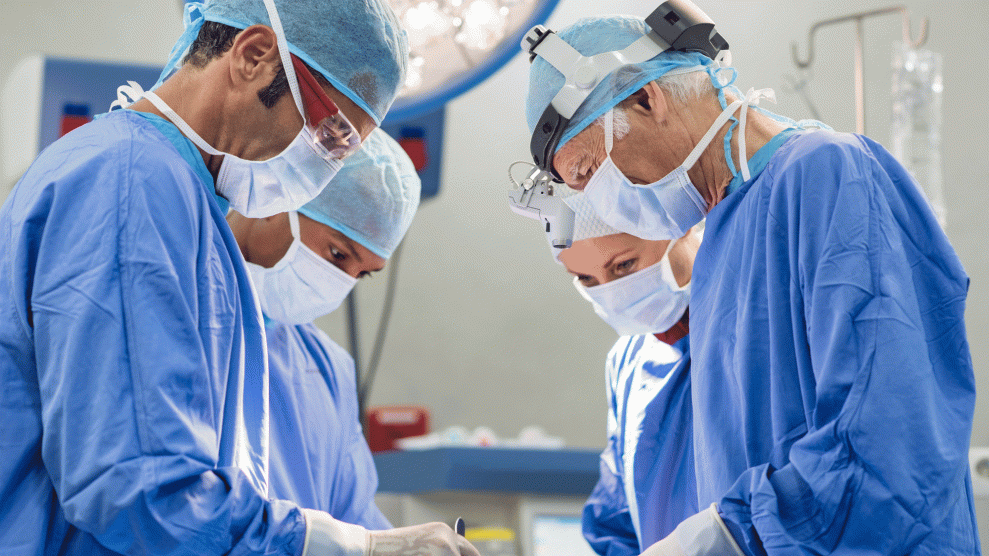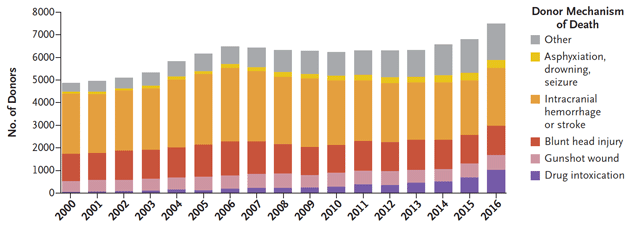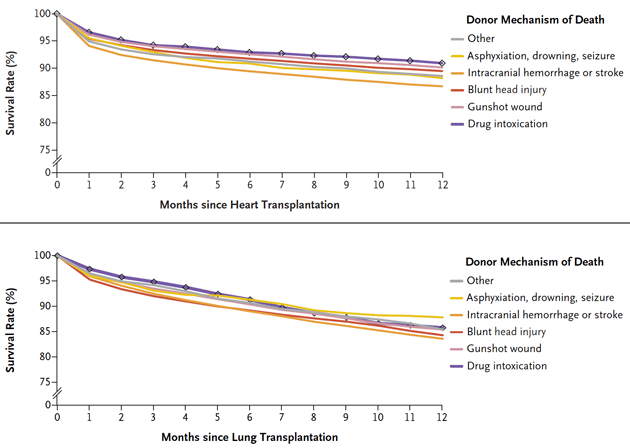
Ridofranz/Getty
The mounting death toll from the overdose epidemic has had an unforeseen effect: more organ donors.
Between 2000 and 2016, the number of organ donors who died of drug overdoses grew 17-fold, according to a new study in the New England Journal of Medicine. In 2016, 1,029 overdose victims donated organs, comprising 14 percent of all donors.

The takeaway is not just that organ donations are increasing, but that organs from overdose victims appear to be just as viable as those from other donors. “Historically, there has been some resistance to using organs of patients who died of drug overdose that still persists,” says Dr. Josef Stehlik, a study co-author and University of Utah School of Medicine professor. Yet when the researchers examined first-year survival rates of the 2,360 patients who received heart or lung donations from overdose victims, they found similar outcomes to those who received organs from donors who died of other causes. The study specifically examined heart and lung patients because those organs are particularly sensitive to the reduced oxygen supply that happens during an overdose.

The study authors were unable to examine how long the organ donors had been using drugs—and if chronic drug use had an effect on survival rates of donation recipients. But Stehlik pointed out that, regardless of the cause of death, donated organs are thoroughly evaluated for function. (All heart donors, for example, have an echocardiogram.)
Currently, more than 110,000 Americans are waiting for organ transplants—a number that is growing as the population ages and medical advances enable more patients to survive illnesses long enough to be eligible for donations.
“Transplantation is always sensitive because it happens at a very difficult time for the donor and the donor family,” says Stehlik. “The overriding message here is that the overall goal is to reduce this unnecessary death. The secondary message: in the unfortunate circumstances that these deaths happen, we should definitely explore all options for these donors to be able to donate organs.”
















